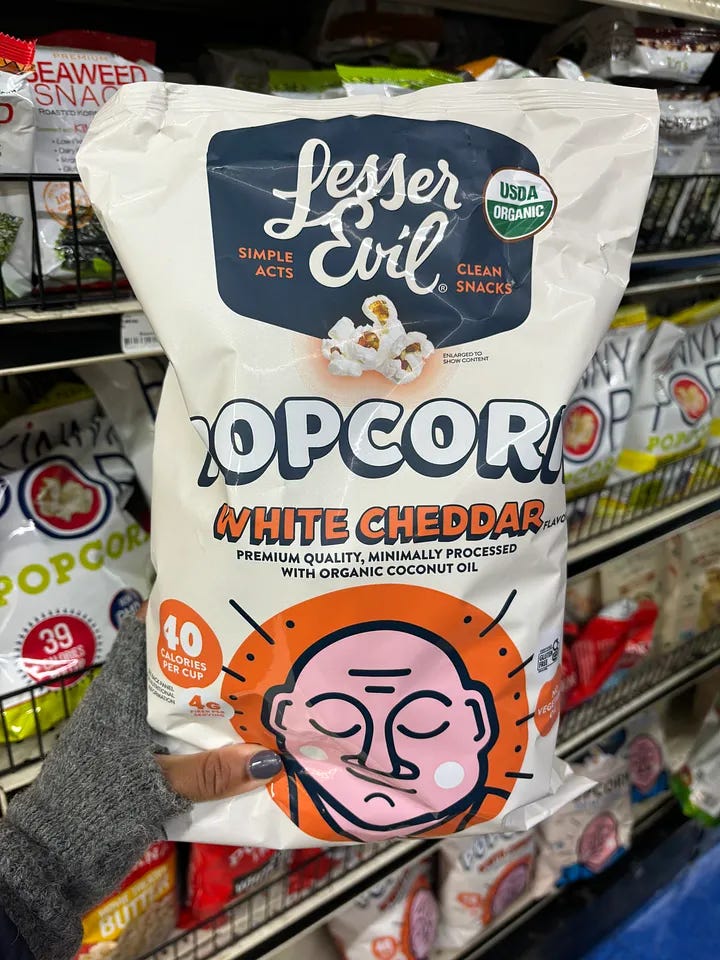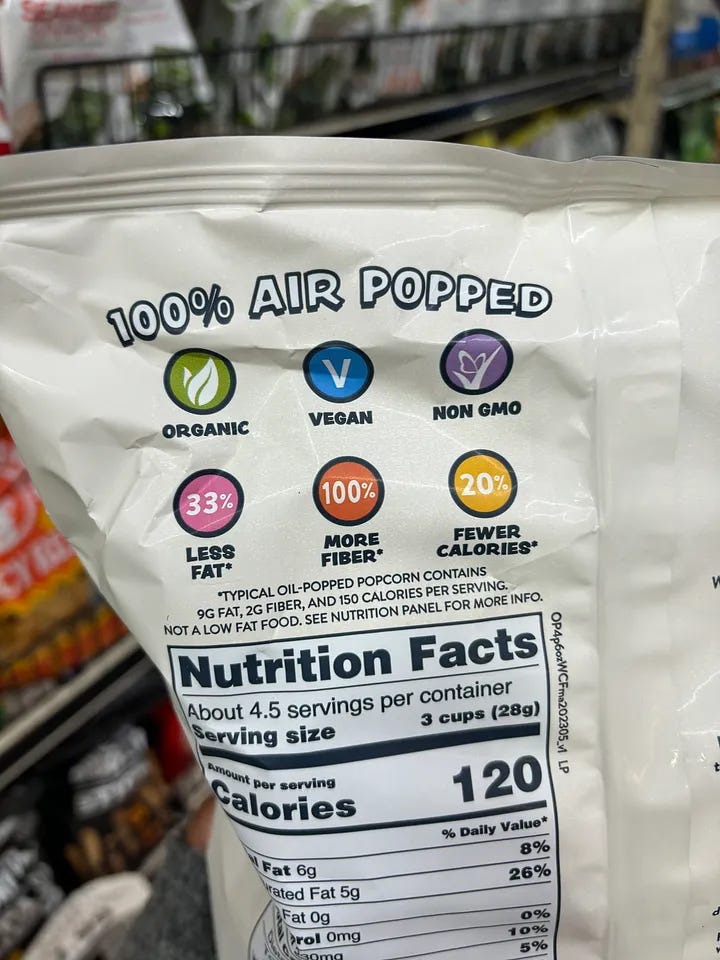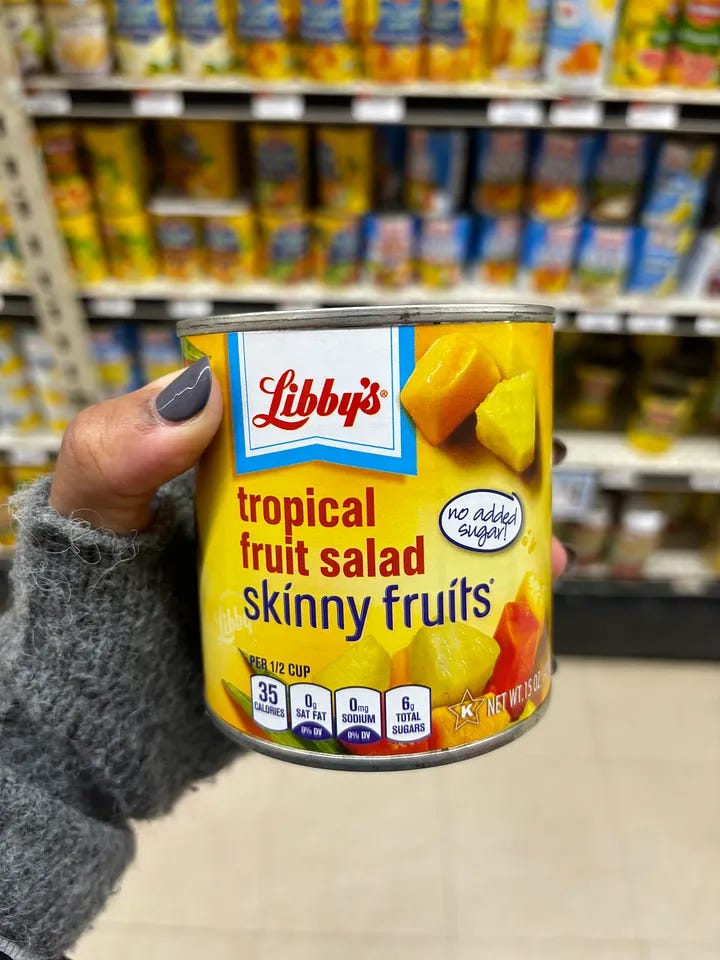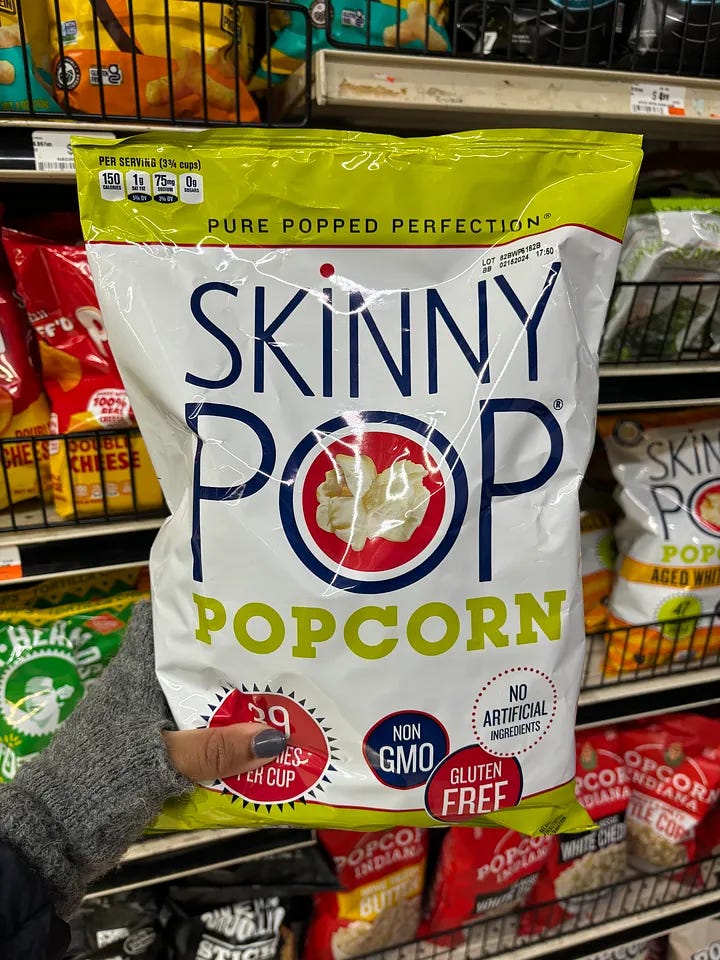Food can just be food
Food marketing and labeling is a fascinating topic. We (society) love to slap the words clean, skinny, detox, super, etc. on foods, which just translates to more fear mongering.
I sometimes make a joke about Friday nights at the grocery store being the hot spot for adults. It’s not even a joke really considering that it is 90% empty, they are playing the best music (AKA all the songs we millenials listened to in high school), and there is no line to get in. It is during these wild Friday nights of shopping that I have time and space to really browse the aisles and notice new and different food brands.
Let’s face it, grocery shopping is one of those necessary tasks that we as adults have to complete. Our bodies need food in order to survive and there is no gettign around this, so we find ways to acquire food. Even those who claim to be top-tier-take-out-connoisseurs, have spent some time going through grocery stores making some sort of purchase. We spend a good amount of time going up and down the aisles focusing on the products that we came in for and the products that we are used to, that we might not notice all the various ways marketing plays a role in our food choices.
We usually make purchasing decisions when we see certain packaging. Of course, we are familiar with the cartoon characters on cereal boxes or the brand logos that incorporate pictures, but I’m also referring to the words strategically placed on packages or even the brand names themselves. The more we start to really pay attention to what’s on the label, the more privy we become to what we are told to think about regarding food. According to some studies, “using specific colors in food labeling like red and yellow is said to have a psychological impact on people’s desire for food. However, a food product focusing on organic might feature more ‘earthy’ colors compared to bright colors, which might suggest they have artificial colors.”
Maybe this sounds familiar to some, after all, colors can be associated with different moods and symbolic meanings. But what we should start taking note of are the negative descriptions of foods that we see on products, such as toxic, sinful, garbage, junk, etc. The product will advertise how they are not these things, but these descriptions of any food are unnecessary. I wrote about the power of words recently, and the same logic applies here. Why do we feel the need to describe food as garbage and junk? Because it’s processed and/or packaged? Remember that different foods are meant to provide different things, and not all foods are meant to be consumed with nutrients and specific nutrition in mind.
This language doesn’t seem harmful, but remember that words carry intentional meanings. There is already so much fear mongering around food and people scared to consume certain products and ingredients, slapping the words “non-toxic” on a package, reinforces this. Not to mention that it’s all unneccessary.
Let’s take a look at what I mean:
*I want to make a disclaimer that this is shockingly not an attack on the nutrition, benefits, or taste of these products. Many of these products are delicious and can be enjoyed but we need to start paying attention to the marketing and what is being implied. If you enjoy these products, by all means, please continue to enjoy them.*


The first product I want to discuss is Lesser Evil Popcorn. My question is, what makes other popcorn more evil? If you’re rolling your eyes at this question, maybe we should start rolling our eyes at brands using a Buddha logo, and referring to themselves as “less evil” seems a bit morally superior. What is it exactly, that makes their product superior and less evil to others? From what is written on the back label, their product is organic, vegan, non-GMO, and has less fat, more fiber, and fewer calories than other popcorn. Organic is another label placed on food that many people will never admit they don’t fully understand. It does not mean any pesticides or chemicals are used, and of course, the products usually cost much more than conventional.
If organic is important to some, that’s fine, but it doesn’t make someone morally superior or “less evil.” If we were to look at the nutrients, there is a 3-gram difference in fat between this version and regular, so that correlates to making people feel guilty about this difference. The words minimally processed with organic coconut oil are written on the front. This tactic utilizes the fear that many consumers have regarding processed foods. The word-processed should not be scary. And, of course, the product is called a “clean snack.” I wrote about using this word also to describe food, so I will remind everyone, there isn’t a definition of clean in the health industry, and companies can use this term however they wish.
Along with the negative connotations of words used with food, there will, of course, be the positive. I consider myself a non-diet dietitian (this is quite the tongue twister), and I also have a weight-inclusive approach, so I will always notice how we consider thin bodies the epitome of health, no matter what. This is also what I am referring to when I call this the “positive” marketing approach. Many foods contain the word “thin,” but what will always be catchy to companies is the sister word “skinny”. This word has been incorporated so much for so long now (thanks, Bethenny Frankel!) that we probably don’t even notice it. Yes, it usually means that there is less of something like sugar, fat, and/or calories, but in a way, it’s so bizarre that we can’t just say that. We have to call the product or food “skinny.”


Looking at these food products, one is advertised as lower in calories, and the other is lower in sugar. But we can’t say just that, no we have to deem these “skinny”. What is the most comical is the need to refer to something like fruit as “skinny,” but I’m not even going to go there. I’m sure this is inducing another eye roll from people who think that I’m taking this too seriously. But please note that I am also rolling my eyes at these ridiculous names and insinuations. Not to mention I am 100% sure the “stop taking it seriously it’s just a name” crowd, have never worked with an eating disorder population. I am sure of it.
So, what exactly is the purpose of my rambling about this? It’s because I don’t understand why we can’t just call foods what they are instead of the unnecessary labeling. I mean I do understand it from a marketing perspective and why it’s done, but my hope is that more people recognize these tactics. It’s important to recognize these words have become normalized, and there are indeed implications, even if they seem harmless at a glance. We are constantly praising thin bodies and even though we are talking about a food being “skinny" or “thin”, there is a correlation on how we view it and how we internalize the messaging.
You can eat HOWEVER you want. That’s not what this article is about. I would never food shame anyone, regardless of their choices, because I’m not the food police. This is for the people who eat certain foods, brands, and labels only because they think it’s superior especially when they don’t actually enjoy them. We need to start realizing that many of these labels are based off of marketing and are just buzzwords. If you are eating these foods but don’t actually like them, or are struggling to afford them, I would really love to invite you to stop. Different foods will give us different forms of nourishment. Guilt has no place at the table. Eat what you love and what works for you and your body. And most importantly, do not yuck someone else’s yum.





